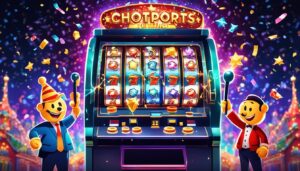
Over the years, online gaming has changed profoundly. Originally isolated experiences where users battled against artificial intelligence or played alone, what once started out as such has developed into dynamic, participatory communities. The importance of social ties in online gaming has grown as the terrain of gaming develops. Social elements katso nyt today are not only extras; they are influencing the direction games are produced, played, and experienced in going forward.
The Emergence of Multiplayer Experiences
- Online gaming underwent a sea change when single-player games gave way to multiplayer scenarios. First, via text-based chat rooms or restricted multiplayer features, internet games let players interact with others. But the range of these links expanded as technology developed. Gamers started interacting in bigger groups, using voice chat, and working through challenging multiplayer games.
- Playing alongside friends, total strangers, and even professional athletes gave gaming fresh levels of thrills and challenge. Strategically based games, battle royales, and team-oriented first-person shooters came to represent cooperation, teamwork, and social engagement. The rise of esports and live streaming platforms has served to confirm how crucial social interaction is in gaming.
Social aspects: a fresh perspective on gaming

- Today’s games connect rather than only let you play. From guilds to live broadcasting to in-game conversations, the social component has grown somewhat embedded in gaming experiences. Real-time interactions among players allow them to share their development and create connections spanning much beyond the screen.
- More connected gaming environments have resulted from social elements such as friend lists, leader boards, and accomplishment sharing. Gamers today share real-time ideas, methods, and strategies, therefore transforming gaming into a more group activity. Social media integrations let users share their in-game successes, pictures, and even game-related memes, therefore encouraging a feeling of pride and belonging inside the gaming community.
- Furthermore, driving these social connections to ever more immersive degrees are virtual reality (VR) and augmented reality (AR). Players can meet people in virtual locations, engage in face-to-face interactions, and even travel to planets together in VR settings. These developments enable closer, more intimate social contacts modelled by actual interactions.
How Online Communities Affect Gaming Culture
Diverse gaming cultures have also emerged from the expansion of online gaming communities. Every kind of player—from casual gamers to professional streamers and esports athletes—has a community. These groups give others with similar interest’s venues to talk about games, share ideas, and honor successes. Social connections’ integration will only get more important as the gaming sector changes. Future internet gaming looks to be more linked than ever thanks to developments in artificial intelligence, cloud gaming, and cross-platform play. Imagine attending virtual concerts and events inside a game itself or playing a game across several devices while keeping the same social contacts.
Connecting people katso nyt from all around the world, online gaming will remain a bridge for social contact. For many, it’s more than simply a pastime; it’s a means of developing enduring relationships, networking with like-minded individuals, and participating in something more than themselves. Online gaming ultimately is about belonging rather than only about playing. And social ties will always be at the core of the gaming experience as technology develops, therefore influencing its future in ways we can only start to foresee.






